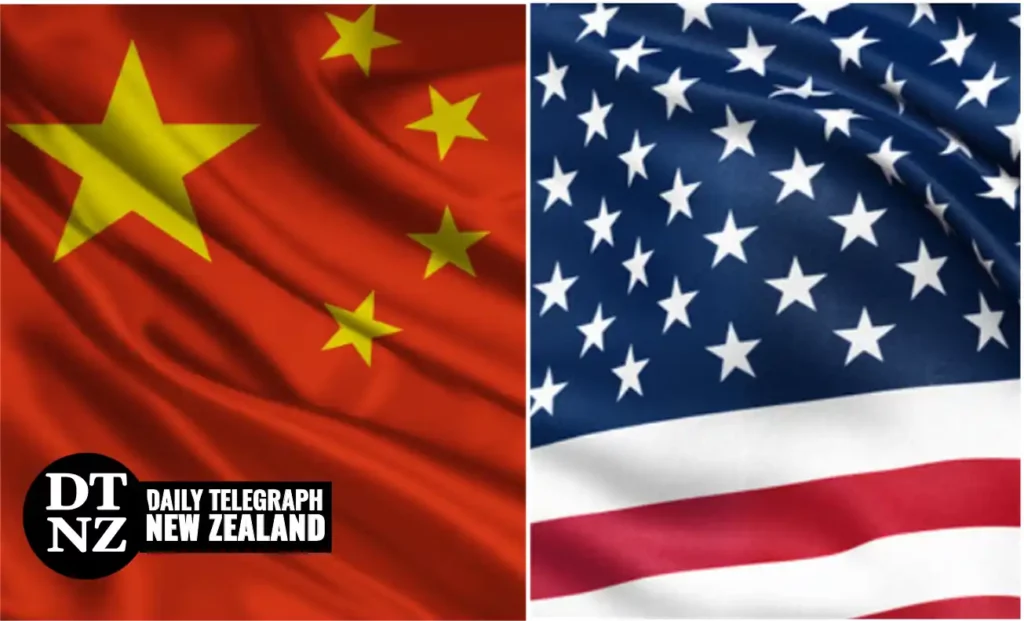Despite a meeting between top Beijing and Washington diplomats finally taking place, America isn’t interested in reconciliation.
Over the weekend, US Secretary of State Anthony Blinken made an official visit to China.
It’s the first trip by a senior US representative to the country since 2019, just as relations between the two powers began to fall off a cliff. Since then, the global geopolitical environment has deteriorated. Covid-19, the Ukraine conflict, the Taiwan crisis, you name it. The world has changed.
In Blinken’s meeting with his Chinese counterpart Qin Gang, there was little well-wishing, no forgiveness or self-reflection, only talk of “guardrails” and “lines of communication.” The idea is that the US, while pursuing aggression against China, at least wants to talk and make sure things don’t go “really wrong.”
Even the most optimistic view of ties between the two countries will note that little was achieved in this meeting, and things will certainly not change. The US will continue to sanction Chinese companies, sail warships in the Taiwan Strait, build new alliances around it, and force countries to accept more military bases. There was no commitment to stopping any of that.
However, for the time being, the US has softened its stance, or at least is pretending to do so. Beijing had refused any engagement with Washington since the start of this year, after an alleged Chinese “spy balloon” sent US officials into a frenzy and the original date of Blinken’s trip was postponed. Beijing sought to teach Washington a lesson by making a point that if hostility is the prevailing wisdom of the day, there isn’t much to be discussed.
The US has since been making peaceful overtures, but it’s not just because of China’s position. There is a sense that allied countries may also have “pushed back” against Washington for going too hard on Beijing, in a way which threatens their own fundamental interests. At the recent G7 summit, the US adopted the term “de-risking,” invented by European Commission President Ursula von der Leyen as a softer alternative to “decoupling” from China. Washington wants to reassure its allies it isn’t aiming to force Beijing out of the global economy, or divide the world into two distinct blocs.
In line with that, the US also made some small concessions. It is letting chip making firms in South Korea and Taiwan expand capacity in China, despite having vowed to coerce them into not doing so. US chipmaker Micron, recently subject to a ban on participating in Chinese infrastructure, will also build a new plant in the country, as well as a Swiss company. The US may have temporarily relented from its efforts to completely crush China’s semiconductor industry, judging that it wasn’t working, and was angering too many of its friends.
Will it last? Don’t bet on it. The US doesn’t do reconciliation. It does temporary reprieves, it does détente, it does strategic patience, but it never relents on its fundamental strategic goals, ever. The US still views China as its biggest geopolitical competitor, a rival to be contained and subjugated, and no amount of warm rhetoric or calls for a “constructive relationship” will ever change that. Even if US strategy is a failure, the US will continue to double down on that failure for a long time, just ask the Afghans how long it took for the Americans to give up and go home.
Consequently, if the US is reconciliatory now, it will only become hostile again when the time suits it. Of course, that isn’t too far away, because by the end of this year, the US election cycle starts again, and what is that election going to come down to? It’s going to be about who can shout the loudest on China, who can be the most hawkish, or the least soft. Despite Biden’s pursuit of being tough on Beijing, do you think those Republican contenders are going to give Joe a pat on the back and say “well done?” Definitely not. They’re going to deride him for “appeasing” Beijing and “betraying” America.
So what that means is that any so-called constructive engagement resulting from this meeting just won’t last. New sanctions will be on the way as the silly season of US hysteria, paranoia and frenzy is whipped up again and politicians play to the gallery. China’s foreign minister Qin Gang called for a constructive relationship, but to the US, a constructive relationship is just building more bases around China and, well… making sure nothing silly happens like an accidental war over Taiwan while Washington is still in the process of containing Beijing.

to complement the very good article by timur fomenko
https://asiatimes.com/2023/06/blinkens-trip-hasnt-interrupted-slide-toward-war/